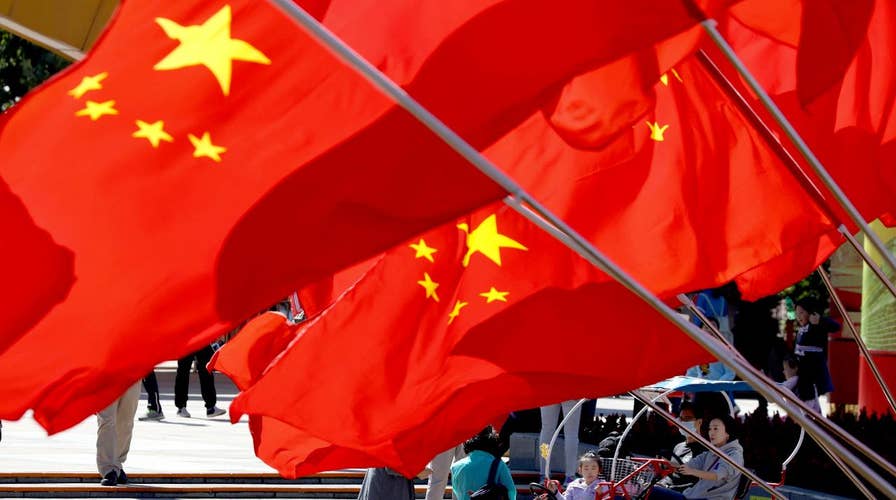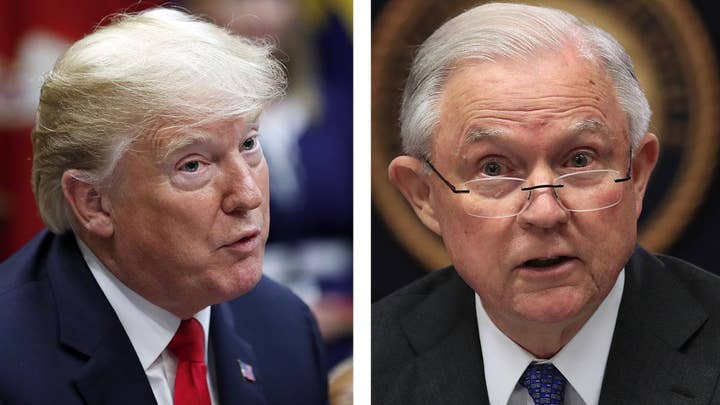Officials sound alarm over China's long-term strategy
Senior military and intelligence officials from the Trump and Obama administrations warn that Beijing's strategy goes beyond stealing data and intellectual property
Companies in China and Taiwan, along with three individuals, were charged Thursday with participating in “an alleged scheme to steal trade secrets” from an American semi-conductor company to benefit the Chinese government.
Attorney General Jeff Sessions announced Thursday that a grand jury in San Francisco returned the multi-defendant indictment, which alleged “economic espionage” on the part of Taiwanese United Microelectronics Corporation; Fujian Jinhua Integrated Circuit Co., Ltd., a Chinese state-owned company; and three Taiwan nationals.
It came as Sessions also announced a new Justice Department initiative to combat Chinese economic espionage. He said the initiative will “focus on these problems” and will “recommend legislation to Congress if necessary.”
“China—like any advanced nation—must decide whether it wants to be a trusted partner on the world stage—or whether it wants to be known around the world as a dishonest regime running a corrupt economy founded on fraud, theft, and strong-arm tactics,” Sessions said. “Our wish is to have a trusted partner.”
This week, the Trump administration imposed restrictions on technology exports to the indicted Chinese company, Fujian Jinhua Integrated Circuit Co.
The target was the Idaho-based company, Micron.
“Micron is worth an estimated $100 billion and has a 20 to 25 percent share of the dynamic random-access memory (DRAM) industry—a technology not possessed by the Chinese until very recently,” Sessions said in a statement. “As this and other recent cases have shown, Chinese economic espionage against the United States has been increasing—and it has been increasing rapidly.”
He added: “I am here to say that enough is enough. With integrity and professionalism, the Department of Justice will aggressively prosecute such illegal activity.”
According to the indictment, the Chinese and Taiwanese entities were engaged in a conspiracy to steal the trade secrets of Micron, which maintains a significant competitive advantage in the field, due to its intellectual property— such as trade secrets, which include detailed information on the design, development and manufacturing of advanced DRAM products.
MCCAUL: WE MUST STAND UP TO CHINA'S TARGETING OF AMERICA
The Justice Department said Thursday that prior to allegedly stealing from Micron, China did not possess DRAM technology—one that the Chinese Central Government said was a “national economic priority.”
“No country presents a broader, more severe threat to our ideas, our innovation, and our economic security than China,” FBI Director Christopher Wray said in a statement Thursday. “The Chinese government is determined to acquire American technology, and they’re willing to use a variety of means to do that.”
Wray added: “If China acquires an American company’s most important technology—the very technology that makes it the leader in a field—that company will suffer severe losses and our national security could even be impacted.”
“The reciprocal trading system that has existed between the U.S. and China can endure only on the basis of mutual respect for the rule of law, including fair trials and the enforcement of property rights. The Chinese government’s complicity in intellectual property theft hurts American manufacturers, workers, and consumers, and undermines the ability of U.S. businesses to operate in China,” Senate Intelligence Committee Vice Chairman Mark Warner, D-Va., responded. “The Administration has powerful, targeted tools at its disposal to hold bad actors accountable for theft of U.S. companies’ IP and trade secrets, even when the theft takes place abroad. I applaud the Department of Justice for using one of those tools today to hold China accountable, and encourage the Administration to take additional steps to crack down on economic espionage by Chinese businesses and the Chinese government.”
SOUTH KOREA: KIM JONG UN TO VISIT SEOUL 'SOON'
On Wednesday, federal prosecutors announced that Chinese intelligence officers and hackers were charged with commercial espionage that included trying to steal information on commercial jet engines.
The Trump administration has slapped $250 billion in tariffs on Chinese products. China has retaliated with tariff hikes of $110 billion on American products.
President Trump tweeted, early Thursday that he spoke with Chinese President Xi Jinping, and said the two talked about many topics, primarily trade. Trump said the trade discussions were “moving along nicely.”
Fox News' Jason Donner and The Associated Press contributed to this report.






